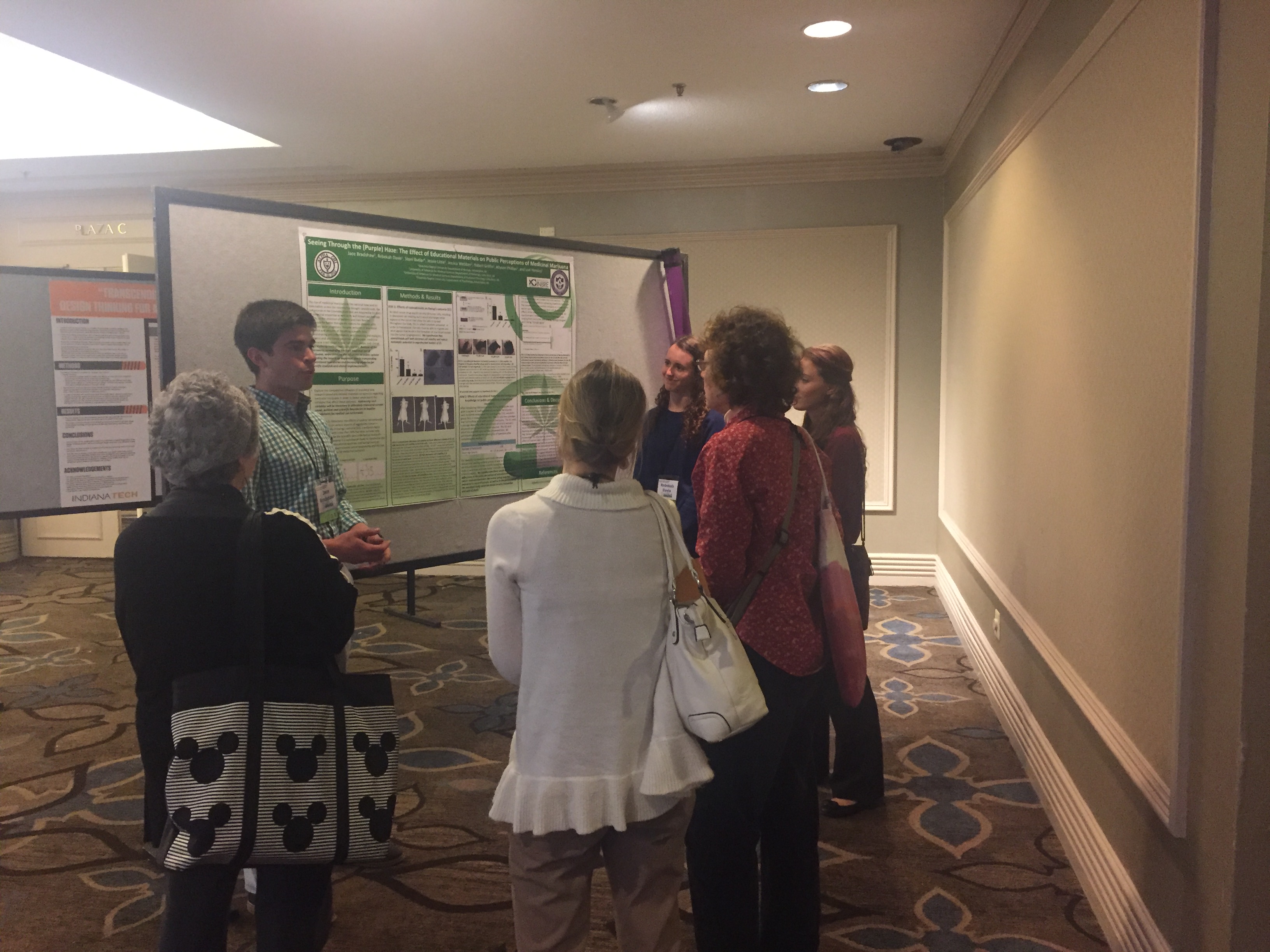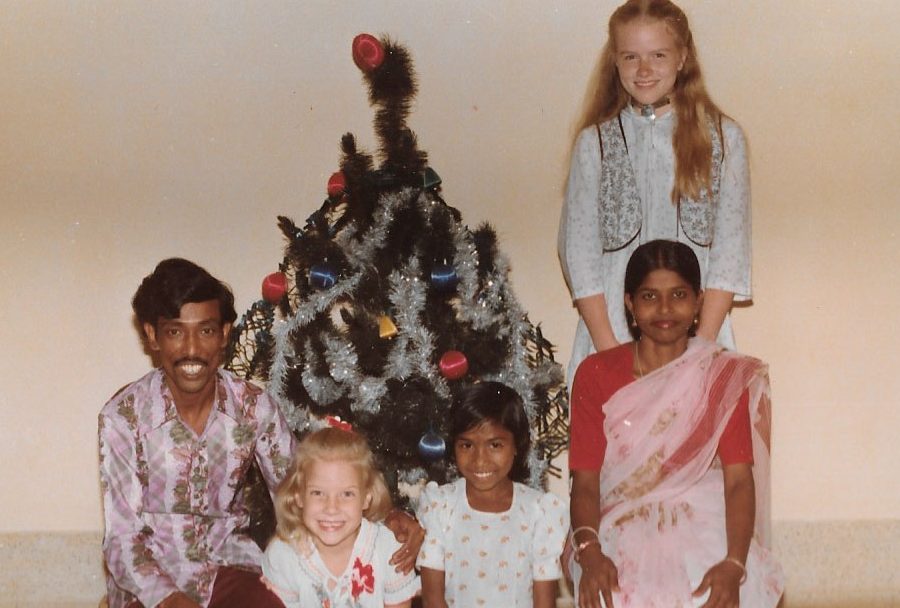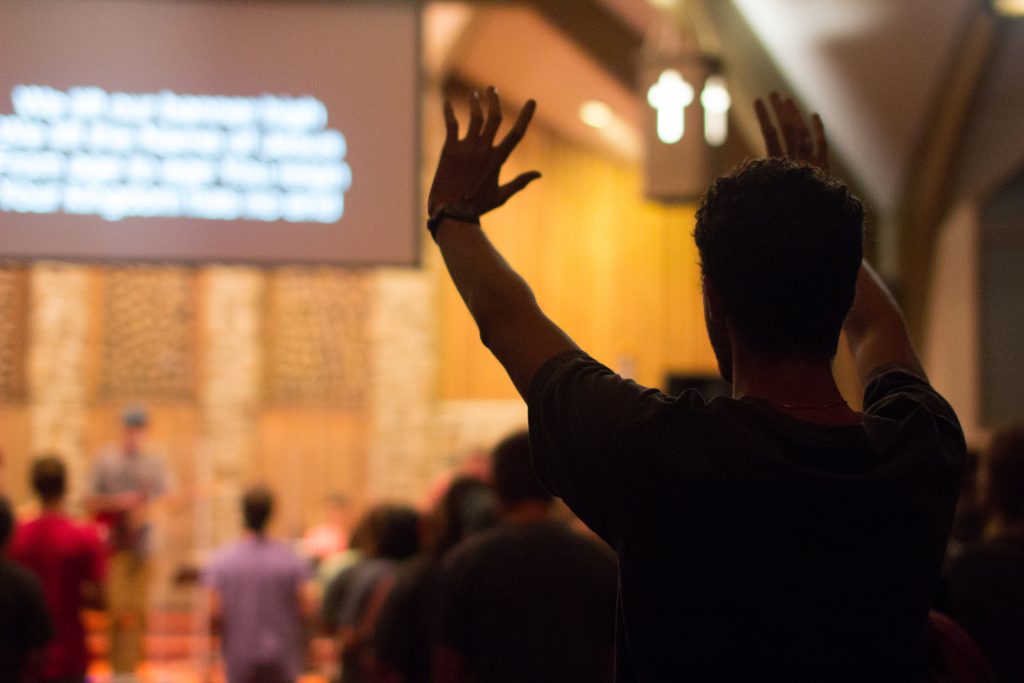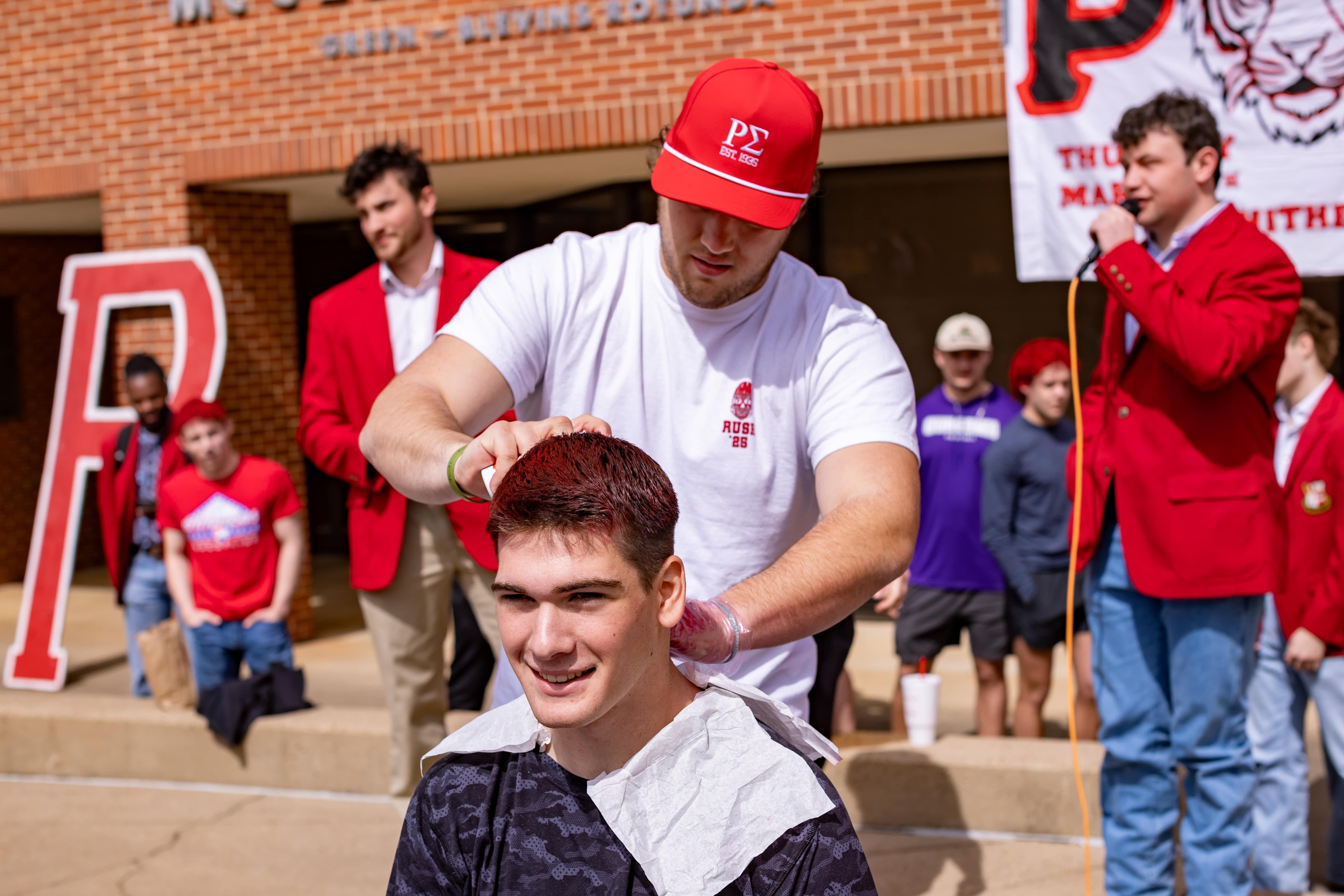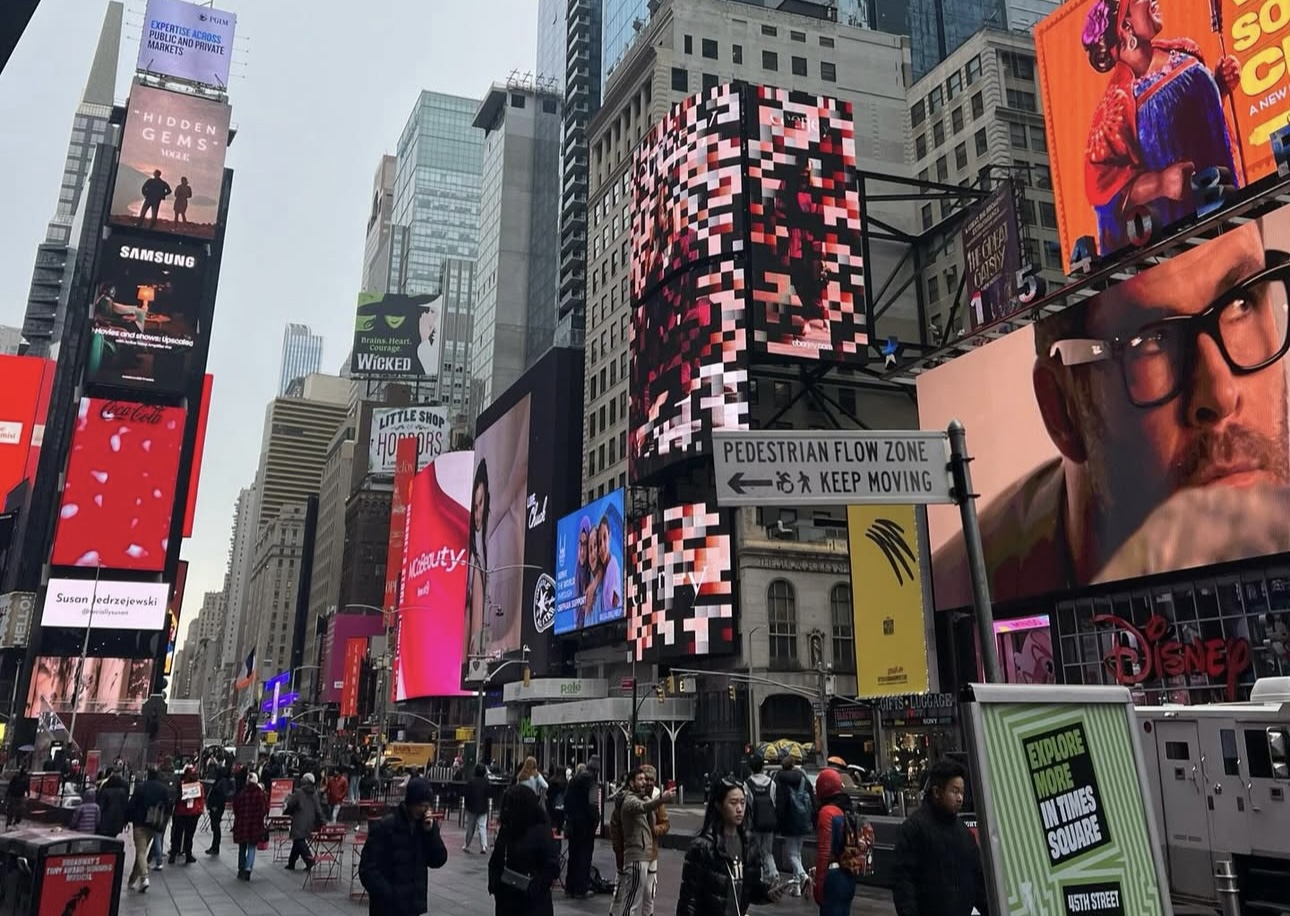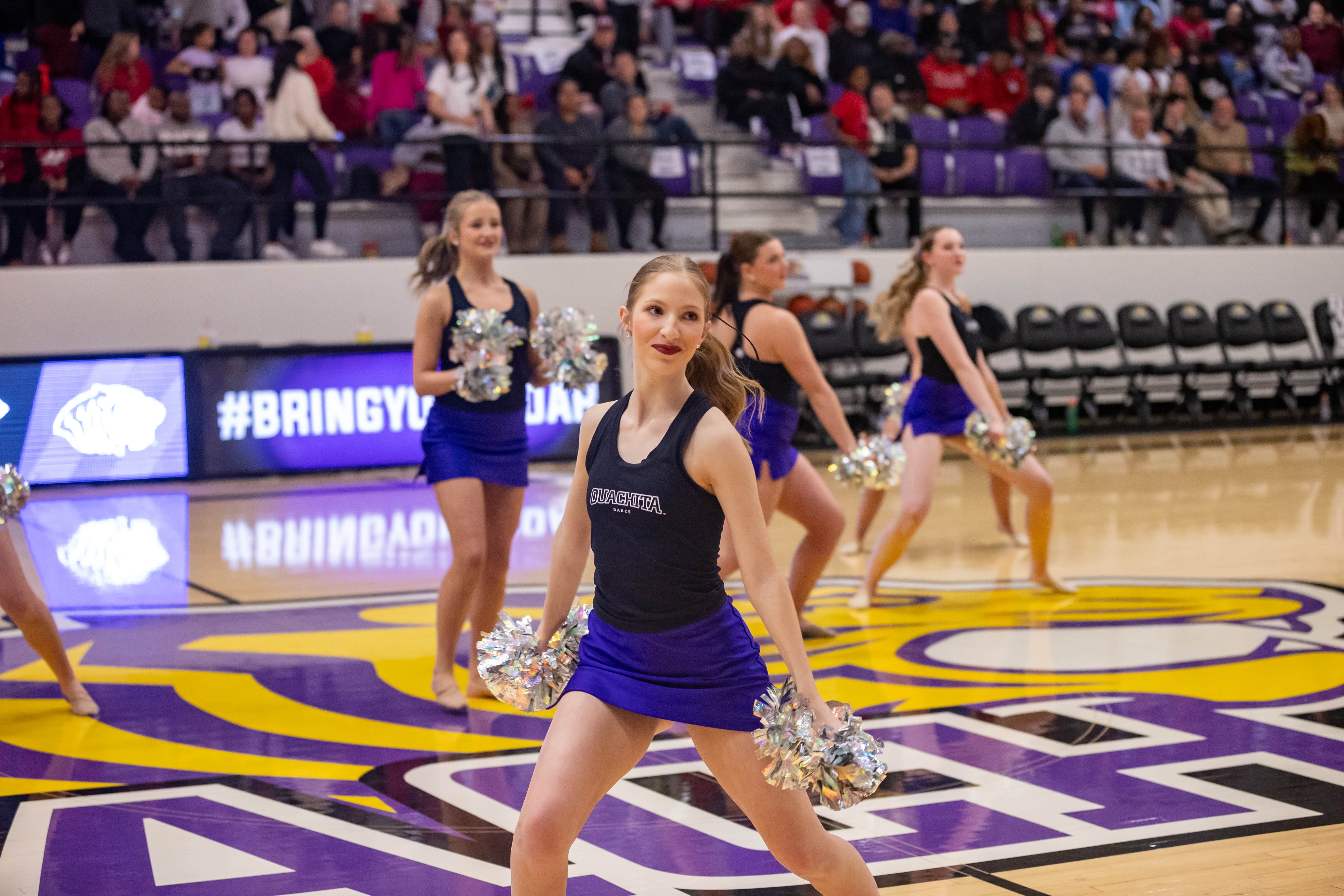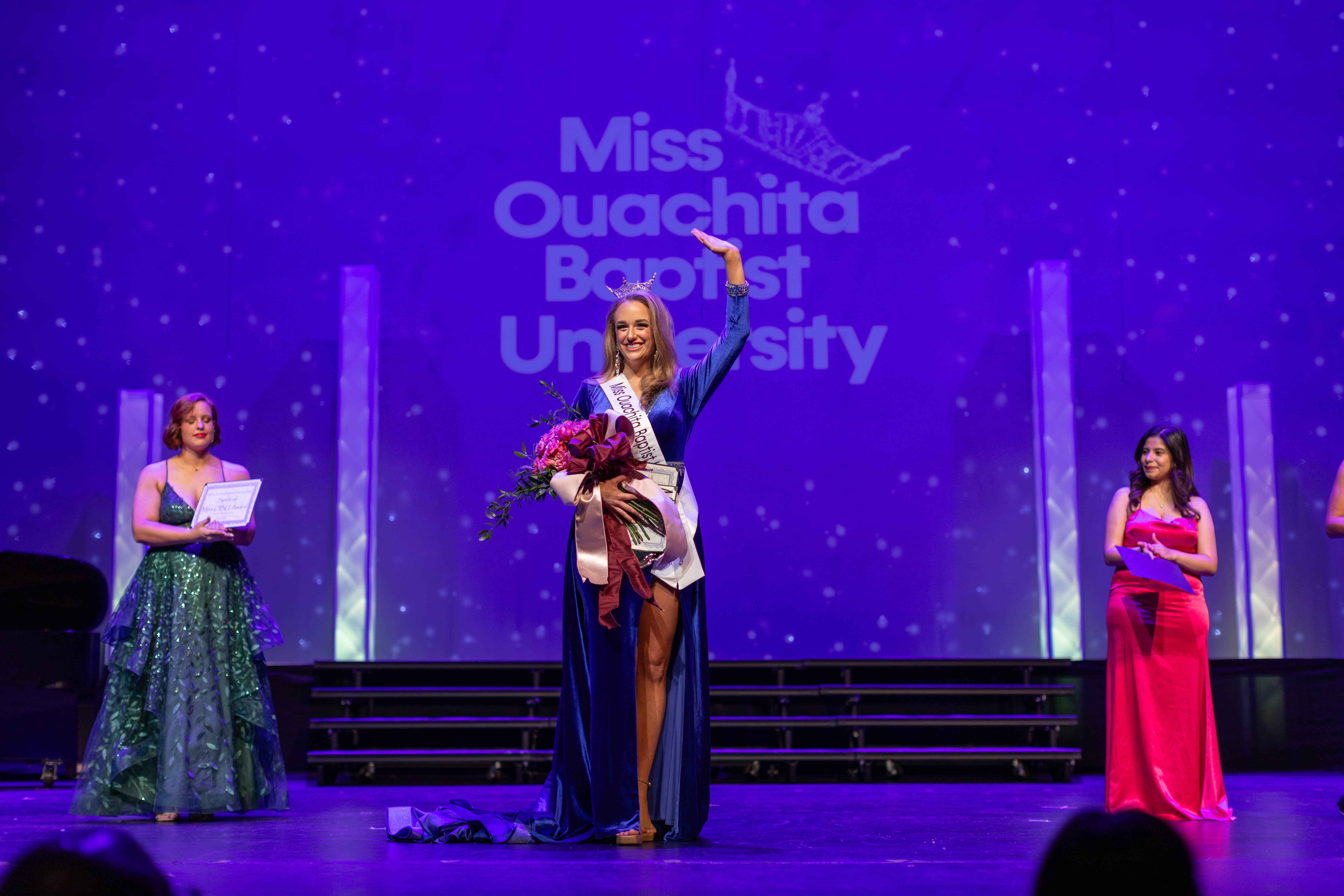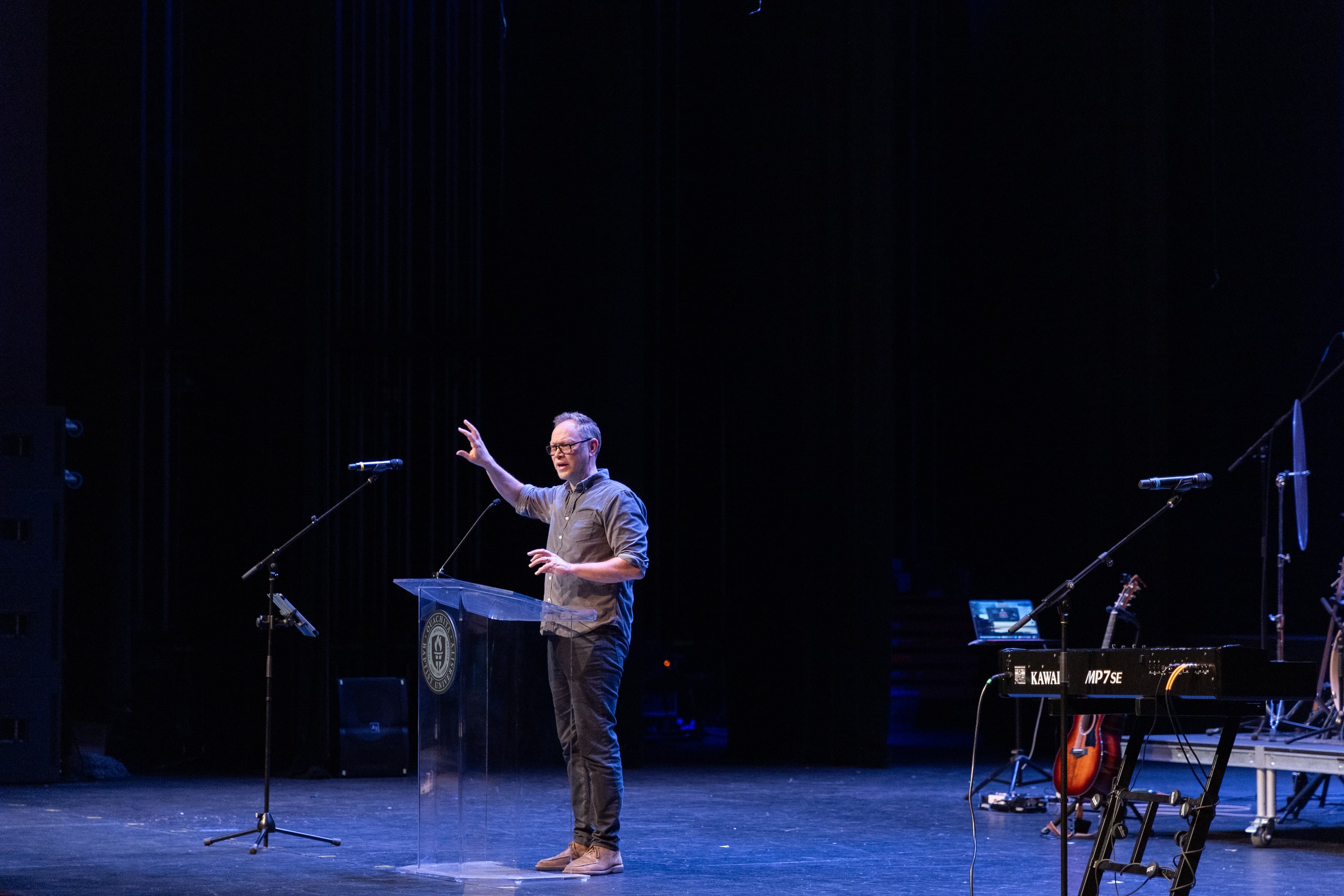Medical marijuana. While 25 states and Washington D.C. have legalized it in some form or fashion, the use of it remains highly controversial. We see intense debates about it on the news. We may even read about new findings pertaining to the subject, but how much do we actually know about the medical use of marijuana?
Since 2004, Dr. Lori Hensley, J.D. Patterson Chair of Biology and Ouachita’s Alpha Chi faculty sponsor, has been working with cannabinoid compounds — found in marijuana — for the initial purpose of developing new treatments for multiple sclerosis. In 2008, however, she and others in the science department began investigating these compounds as potential therapeutics for pediatric cancers with low survival rates.
Through their award-winning presentation at last spring’s Alpha Chi national honors society convention, senior Jace Bradshaw and alumnae Stoni Butler and Rebekah Davis sought to take Dr. Hensley’s research in a new direction.
Controversial cannabinoids
Each year, a select group of students from Ouachita’s Alpha Chi chapter participate in a themed research project to present at the national convention. Last spring’s theme was “Transcending Boundaries,” which the team managed to do not only through their topic, but also through collaboration between their different majors.
Bradshaw, a biology, chemistry and applied physics major from Arkadelphia, and Davis, a former biology major currently attending medical school in Little Rock, began the project by mulling through years of Dr. Hensley’s research to see where the team needed to take the project.
“What we were looking for in the research were items about testing cell viability and the ability to limit metastasis (the spread of cancer from one part of the body to another) of different cancer types,” Bradshaw said. “In doing so, we tested different cannabinoids and how they might be able to limit those things. After looking through the data, we saw that we should be looking at ajulemic acid and cannabidiol as our treatments for the study.”
“We’re dealing with, in some cases, nanomolar quantities, which are really, really small amounts of the drug, and we’re administering it to these cancer cells and we’re actually seeing them die. We’re seeing tumors stop growing,” Bradshaw said. “Things like that are really astounding to me because you see that we are getting closer to a cure, or at least a more effective treatment than what’s currently out there.”
Once the biochemical research had been compiled, the team took the data and created study packets for the psychology portion of the project, which sought to measure how much a student’s background influenced his or her view of medical marijuana. They did this by presenting some Ouachita students and faculty with a control reading, some with hard facts from their research and others with a story about a woman who turned to medical marijuana after exhausting all of her options for cancer treatment.
To the anecdotal group, Butler asked questions like, “Would you be supportive of a family member who was considering medical marijuana as a treatment?” While this group was more likely to rate that question more highly than those presented with the actual data, the latter was more likely to indicate that they had learned more about medical marijuana as a whole.
Overall, the team found that the personal stories presented in the anecdotal evidence were more persuasive to the larger group of participants, with science majors being the least susceptible.
“The results of the psychology study showed us that, especially in the sciences, while we think a lot about the educational value of an argument, it may not be the most important aspect,” said Butler, a former psychology major currently in graduate school at Ohio State University. “So when you’re trying to come up with a campaign, it’s important to have a little bit of both and to pay attention to your audience.”
Winning big in Washington
In early April, after several months of research, surveying and presentation practice, Bradshaw, Butler and Davis boarded a plane with Dr. Hensley to the nation’s capital.
In the little free time they had in the capital, the three students sat down for a meal at the Old Ebbitt Grill, a historical restaurant that had served many former presidents, visited a few famous monuments and even enjoyed a bit of snow outside of the White House. The team was not there for a vacation, however, and when it came down to business, Ouachita Alpha Chi delivered.
The three students were judged based on three criteria: a 10-page research paper they submitted in February, a poster showcasing their research and findings and an eight-minute presentation of the poster. While the team was not required to present their poster the night they arrived, all three students stood by their poster for more than three hours, presenting their work to hundreds of students and faculty members from schools across the nation. And it was because of this, according to Dr. Hensley, that “their presentation improved dramatically, their confidence soared and the end result was an award-winning presentation.”
The months of hard work and the years of research behind the project took center stage in the team’s official presentation, and it came as no surprise to them when Ouachita’s name was called.
“I’ve never actually won anything before, so it was really exciting. I think our project was by far the best one. We had solid research and we fit the theme so well,” Davis said.
Bradshaw added, “I was really pumped. I tried to play it all pretty close to the vest, but it had been a really good day for OBU.”
It had been a monumental day for OBU. In addition to the team winning Best Chapter Strengthening Session, Bradshaw was elected as a Region II student delegate to the national council and won the Edwin W. Gaston, Jr. Scholarship for his research in synthetic biology at Ouachita. Dr. Hensley was elected president of Region II and received two national awards for Outstanding Sponsor. And, for Butler’s second year in a row, the team brought first place and $5,000 back home to Ouachita.
$1,000 and an uncertain future
An uncertain future lies ahead for Dr. Hensley’s research. While she seeks to publish portions of her research each year, her primary focus is investing in her students in the lab and the classroom.
“The goal of my research is not to change or even influence the way people view medical marijuana, but merely to educate families about alternative options for treatment for children with historically few options and poor prognosis,” Dr. Hensley said. “More importantly, the compounds we use have no psychoactive properties, making them far less controversial than marijuana itself and much more appropriate for a pediatric population.”
Upon returning to Ouachita, Bradshaw, Butler and Davis each received $1,000 of the prize money. In addition to their financial award, the students were blessed with a memorable experience that will benefit them for years to come.
“I am so proud of Jace, Stoni and Rebekah. Though they have different majors and goals, they were able to come up with a meaningful project that brought together several fields of study and investigated a timely and relevant question,” Dr. Hensley said. “They are demonstrating the real meaning of a liberal arts education.”
By Evan Wheatly, Features Editor

